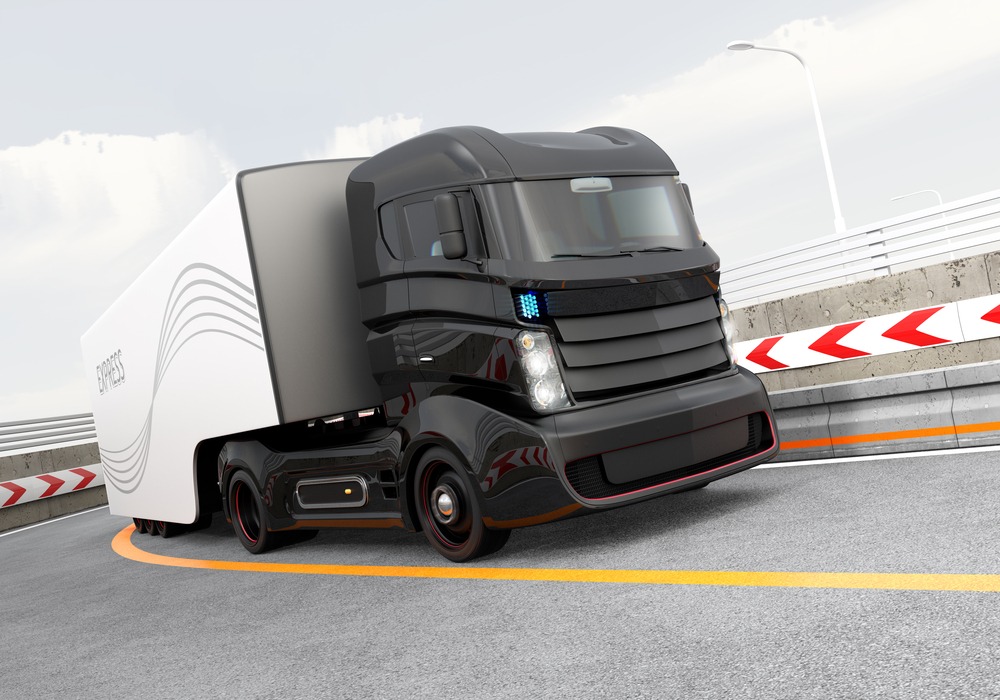
As the Senate Committee on Commerce, Science and Transportation considers the next steps on autonomous vehicle legislation, lawmakers on Wednesday heard industry experts debate what role automated trucks should play in the future.
It was a Senate committee hearing that witness Troy Clarke, CEO of Navistar, said surrounds “the space race of our industry.”
At the heart of the debate during the panel discussion on self-driving trucks was the issue of innovation versus regulation, safety, and jobs in an industry where there are more than 3 million commercial drivers in the United States.
Committee Chairman U.S. Sen. John Thune (R-SD) has been a proponent of adding self-driving truck guidelines to the Senate version of the SELF DRIVE Act, citing how it could help reduce the number of accidents. More than 35,000 people died in vehicular crashes in 2015 in the United States. More than 90 percent of those accidents were attributable to human error, he said.
“Including trucks in the conversation about automated vehicles is important as we seek to improve safety; it also puts our economy on a level playing field as other countries around the world deploy automated freight trucks,” Thune said in opening remarks.
U.S. Sen. Gary Peters (D-MI) said he had concerns about including self-driving trucks in the same legislation as self-driving cars without more discussion on their impact on jobs, transportation, the economy and safety at large.
“I will note that while gathering feedback on Chairman Thune’s and my draft legislation, many stakeholders were clear that the prospect of self-driving trucks raises a very different set of issues from self-driving cars,” Peters said. “As a result, I am of the mind that highly-automated trucks are not ripe for inclusion in this bill.”
The House passed the SELF DRIVE Act last week and left automated trucking provisions out of the legislation, which would speed commercialization of self-driving cars without human controls, prevent states from blocking their deployment, and would improve the role of the National Highway Transportation Safety Administration (NHTSA).
The Senate hearing comes a day after the Trump administration announced that the Department of Transportation had updated its automated driving systems guidelines. Under that update, the industry is under flexible, voluntary guidance that encourages best practices and prioritizes safety as opposed to federal limitations.
Testifying at Wednesday’s hearing were Clarke; Colonel Scott G. Hernandez, chief of the Colorado State Patrol; Ken Hall, general secretary-treasurer for the International Brotherhood of Teamsters; Deborah Hersman, president and CEO of the National Safety Council; and Chris Spear, president and CEO of the American Trucking Associations.
All agreed that safety was critical to legislation moving forward. Yet Hall disagreed that automated trucking should be involved in current legislation.
“Our concern is the safety of the drivers, as well as the general public,” Hall said. “We don’t believe you should include 80,000 lb. vehicles without further study.”
Of particular concern was the notion of voluntary guidance, he said. “We’ve seen too many cases — such as the case at Volkswagen — where people assumed they were doing the right thing,” Hall said. “There must be oversight. That’s why I think it’s premature to think these commercial vehicles should be included at this time.”
He was backed by Sen. Richard Blumenthal (D-CT), who said such measures leave enforcement virtually toothless.
The rest of the experts testifying saw an immediate need for a legal framework.
Spear said, “Preserving a seamless set of safety standards across the country will help to minimize disruptions to the economy and the national supply chain, and support the development of new technology.”
Hersman said that other nations, specifically European competitors, are embracing technology at a more rapid clip than the United States. She argued it made no sense to put cars and trucks on different regulatory tracks. One level of safety, she said, was important for everyone on the road.
“Set those high bars, set the floor,” Hersman said. “We don’t have anything now. It’s a bit of the Wild West out there and we need a sheriff. The opportunity to do that is to have this conversation in this legislation, not to put it off.”
If the ability to prevent fatalities is there, she stressed, it should be taken.
Senators sought answers on how trucking jobs would be impacted by automated technology. Spear, who noted that trucking already faces a 50,000 driver shortage, said that companies would change the role of drivers to something more like pilots, not eliminate them outright. The idea of truly driverless vehicles is years away; connected and assisted driving is close at hand.
In fact, getting the framework in place for automated technology could potentially help the industry, in his view. Spear looked at the issue as a sort of generational one — new technology would help usher in new, younger talent, which would in turn be better able to cope with the technology and adapt it to benefit society.
Spear said that recent NHTSA revisions were headed down the path to protection of the public, and that eventually, rules would keep pace with technological advancement.
Blumenthal, however, said, “The ‘eventually’ concerns me.”
“Relying on voluntary self-assessments and foregoing public oversight and enforcement, I think, is a mistake that would discredit the goal that we share of making technology available and accessible to as many as possible and increasing safety through use of technology,” Blumenthal said. “Revisiting this guidance is something that has to be done and I hope it will be done.”